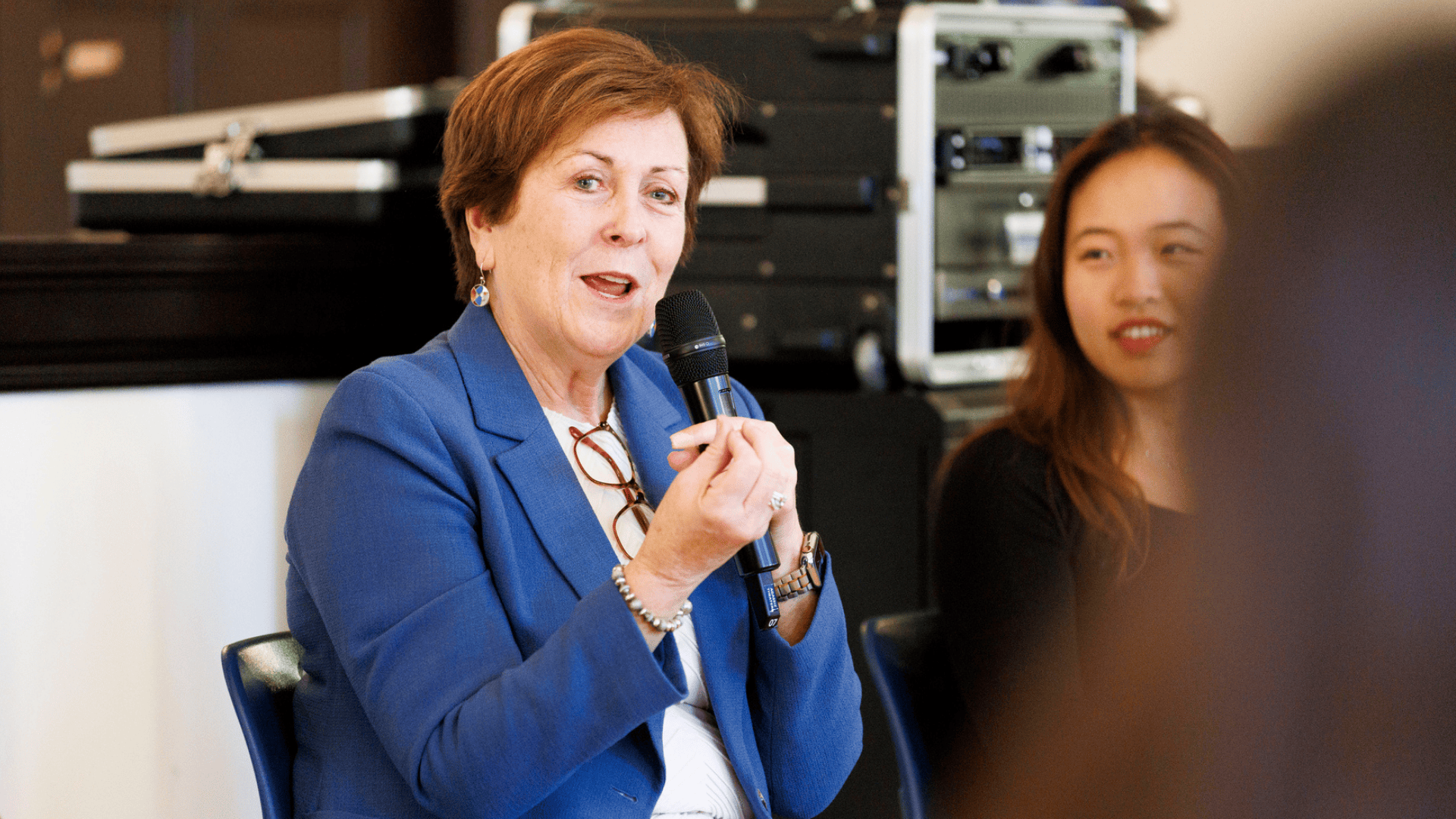Cracks in America’s ‘mirror’
Cracks in America’s ‘mirror’
Former Kennedy Center president urges steps to preserve vitality of the arts

Deborah Rutter believes living an “artful life” is essential to well-being.
The former president of the John F. Kennedy Center for the Performing Arts said that means recognizing that everything that makes daily life beautiful — from the music playing in the grocery store to the architecture of the buildings along your commute — exists because of artists.
“I have a personal belief that artists hold up a mirror to who we are as human beings and who our society is.”
Deborah Rutter
“I have a personal belief that artists hold up a mirror to who we are as human beings and who our society is,” Rutter said. “Our artists are telling the story of what’s happening today. They are the truth-tellers.”
Rutter visited campus recently at the invitation of the Office for the Arts and the Harvard Kennedy School’s Culture and Civil Society Initiative. Her talk was part of an inaugural event called Culture in Action: Building Democracy Through the Arts.
“The series is really about thinking about how all art and culture is vital, and thinking about a healthy and vibrant democracy, and having conversations with national arts policy leaders around the connection between arts and democracy,” Office for the Arts Director Fiona Coffey told the audience.
These days, much of Rutter’s hope for the arts lies in local communities. Though the state of the arts feels “bleak” amid the federal administration’s cuts in funding for the National Endowment for the Arts, she said, performing arts organizations and venues of all sizes across the country continue to offer a wide range of opportunities. Rutter was dismissed by President Trump in February as part of a controversial leadership overhaul of the national cultural center of the U.S.
“The work does continue to happen, and it must continue to happen, and it is vital that the arts leaders who are providing those platforms continue to provide the good, safe, strong environment for artists to do that work,” said Rutter, who is now vice provost for the arts at Duke University.
Rutter said she would like to see arts become a regular part of the school day for all K-12 students. It’s a policy, she said, that’s key to protecting the arts and ensuring their longevity.
“There are so many stories of individuals who say, ‘My life was saved because of my drama teacher or my music teacher,’” Rutter said.
She also championed a base living wage and access to healthcare for all professional artists, something she said would provide the security necessary for them to create without taking on multiple side gigs.
“Why is a restaurant more important than an art gallery?” Rutter said. “They both are a piece of the economy. Why is a sports team more important than a dance company? This is where the policy comes in, and the value and appreciation. [John F.] Kennedy spoke about the value of the artist and how art is how we remember a society. When you think back on history, a lot of that is based on the culture of that time.”
“Empathy is critical to survival.”
Deborah Rutter
During a Q&A, one audience member asked Rutter how she sees humanities linked to arts. Rutter said both help build the muscle of empathy by offering new perspectives.
“Empathy is critical to survival,” Rutter said. “We need to understand one another. We don’t have to agree with one another, but you have to have a certain level of empathy. And empathy is something that you learn by experiencing and seeing the world through others’ eyes.”






